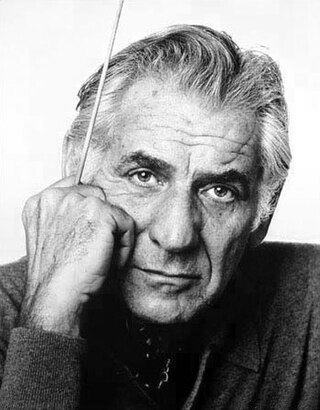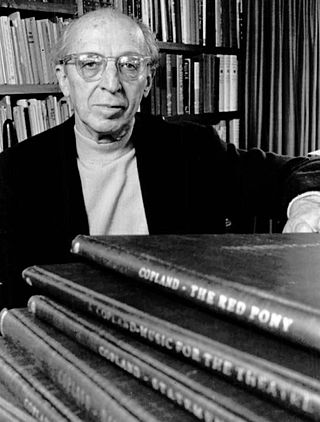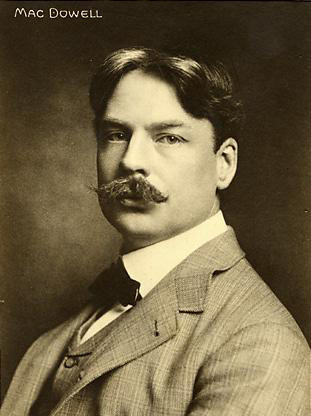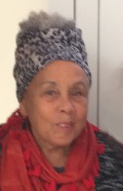Related Research Articles

Stephen Joshua Sondheim was an American composer and lyricist. Regarded as one of the most important figures in 20th-century musical theater, he is credited with reinventing the American musical. With his frequent collaborators Harold Prince and James Lapine, Sondheim's Broadway musicals tackled unexpected themes that ranged beyond the genre's traditional subjects, while addressing darker elements of the human experience. His music and lyrics are tinged with complexity, sophistication, and ambivalence about various aspects of life.

Leonard Bernstein was an American conductor, composer, pianist, music educator, author, and humanitarian. Considered to be one of the most important conductors of his time, he was the first American-born conductor to receive international acclaim. Bernstein was "one of the most prodigiously talented and successful musicians in American history" according to music critic Donal Henahan. Bernstein's honors and accolades include seven Emmy Awards, two Tony Awards, and 16 Grammy Awards as well as an Academy Award nomination. He received the Kennedy Center Honor in 1981.

Aaron Copland was an American composer, critic, writer, teacher, pianist and later a conductor of his own and other American music. Copland was referred to by his peers and critics as the "Dean of American Composers". The open, slowly changing harmonies in much of his music are typical of what many people consider to be the sound of American music, evoking the vast American landscape and pioneer spirit. He is best known for the works he wrote in the 1930s and 1940s in a deliberately accessible style often referred to as "populist" and which the composer labeled his "vernacular" style. Works in this vein include the ballets Appalachian Spring, Billy the Kid and Rodeo, his Fanfare for the Common Man and Third Symphony. In addition to his ballets and orchestral works, he produced music in many other genres, including chamber music, vocal works, opera and film scores.

Elmer Bernstein was an American composer and conductor. In a career that spanned over five decades, he composed "some of the most recognizable and memorable themes in Hollywood history", including over 150 original film scores, as well as scores for nearly 80 television productions. For his work, he received an Academy Award for Thoroughly Modern Millie (1967) and Primetime Emmy Award. He also received seven Golden Globe Awards, five Grammy Awards, and two Tony Award nominations.
Harold Samuel Shapero was an American composer.

Gunther Alexander Schuller was an American composer, conductor, horn player, author, historian, educator, publisher, and jazz musician.
MacDowell is an artist's residency program in Peterborough, New Hampshire. The program was founded in 1907 by composer Edward MacDowell and his wife, pianist and philanthropist Marian MacDowell. Prior to July 2020, it was known as the MacDowell Colony or "The Colony", but its board of directors shortened the name to remove "terminology with oppressive overtones".

Edward Alexander MacDowell was an American composer and pianist of the late Romantic period. He was best known for his second piano concerto and his piano suites Woodland Sketches, Sea Pieces and New England Idylls. Woodland Sketches includes his most popular short piece, "To a Wild Rose". In 1904 he was one of the first seven Americans honored by membership in the American Academy of Arts and Letters.

The National Medal of Arts is an award and title created by the United States Congress in 1984, for the purpose of honoring artists and patrons of the arts. A prestigious American honor, it is the highest honor given to artists and arts patrons by the United States government. Nominations are submitted to the National Council on the Arts, the advisory committee of the National Endowment for the Arts (NEA), who then submits its recommendations to the White House for the President of the United States to award. The medal was designed for the NEA by sculptor Robert Graham.
Barbara Kolb is an American composer. Her music uses sound masses and often creates vertical structures through simultaneous rhythmic or melodic units. Kolb's musical style can be identified by her use of colorful textures, impressionistic touch, and atonal vocabulary, with influences stemming from literary and visual arts.
Martin Kennedy is a pianist and composer of contemporary classical music.

Betye Irene Saar is an African American artist known for her work in the medium of assemblage. Saar is a visual storyteller and an accomplished printmaker. Saar was a part of the Black Arts Movement in the 1970s, which engaged myths and stereotypes about race and femininity. Her work is considered highly political, as she challenged negative ideas about African Americans throughout her career; Saar is best known for her artwork that critiques American racism toward Black people.
Alison Saar is a Los Angeles, California based sculptor, mixed-media, and installation artist. Her artwork focuses on the African diaspora and black female identity and is influenced by African, Caribbean, and Latin American folk art and spirituality. Saar is well known for "transforming found objects to reflect themes of cultural and social identity, history, and religion." Saar credits her parents, collagist and assemblage artist Betye Saar and painter and art conservator Richard Saar, for her early exposure to are and to these metaphysical and spiritual practices. Saar followed in her parents footsteps along with her sisters, Lezley Saar and Tracye Saar-Cavanaugh who are also artists. Saar has been a practicing artist for many years, exhibiting in galleries around the world as well as installing public art works in New York City. She has received achievement awards from institutions including the New York City Art Commission as well as the Institute of Contemporary Art in Boston.

Marian MacDowell was an American pianist and philanthropist. In 1907, she and her husband Edward MacDowell founded the MacDowell Colony for artists in Peterborough, New Hampshire. Her leadership of the artist retreat through two world wars, the Great Depression and other challenges created one of the foremost cultural institutions in the United States, which cultivated the work of generations of musicians, writers, poets, sculptors, and visual artists.
Two American Academy of Arts and Letters Gold Medals are awarded each year by the academy for distinguished achievement. The two awards are taken in rotation from these categories:
Daniel Asia is an American composer. He was born in Seattle, Washington, in the United States of America.
The MacDowell Clubs in the United States were established at the turn of the twentieth century to honor internationally recognized American composer Edward MacDowell. They became part of a broader social movement to promote music and other art forms in America.
Gerald Cohen is an American composer and cantor. He is currently the cantor at Shaarei Tikvah in Scarsdale, New York and is based in Yonkers. Cohen serves on the faculties of Jewish Theological Seminary and Hebrew Union College. Cohen's compositions are published by Oxford University Press, G. Schirmer/AMP, and Transcontinental Music Publications.
Michael Stephen Brown is an American classical pianist and composer. He is the recipient of the 2015 Avery Fisher Career Grant, 2018 Emerging Artist Award from Lincoln Center, and the 2010 Concert Artists Guild Competition. Brown has performed as soloist with the Seattle, Grand Rapids, North Carolina, Maryland and Albany symphony orchestras, and at Carnegie Hall, Caramoor, the Smithsonian, Alice Tully Hall, and the Gilmore Festival. He is an artist at the Chamber Music Society of Lincoln Center, and is a former member of CMS Two. He regularly performs duo recitals with cellist Nicholas Canellakis. He has received commissions from many organizations and some of today’s leading artists, and recently toured his own Piano Concerto around the US and Poland with several orchestras.
References
- ↑ "The MacDowell Colony". ResArtis: worldwide network of artist residencies. ResArtis. Retrieved 1 July 2015.
- ↑ "Artists Retreat into Solitude at MacDowell Colony". NPR. NPR. Retrieved 1 July 2015.
- ↑ "Artists and Works Supported by MacDowell". MacDowell Colony. MacDowell Colony. Retrieved 1 July 2015.
- ↑ "History of MacDowell Colony". MacDowell Colony. MacDowell Colony. Archived from the original on 15 March 2017. Retrieved 1 July 2015.
- 1 2 Boehm, Mike. "L.A. artist Betye Saar wins art colony medal, joining elite club". Los Angeles Times . Retrieved July 4, 2015.
- ↑ Rausch, Robin. "A Century of Creativity: The MacDowell Colony, 1907-2007". Information Bulletin. Library of Congress . Retrieved July 4, 2015.
- ↑ Reily, Nancy Hopkins (2009). Georgia O'Keeffe, a Private Friendship: Walking the Abiquiu and Ghost Ranch land. Sunstone Press. pp. 426–428. ISBN 9780865344525.
- ↑ Freedman, Samuel G. (August 27, 1984), "McCarthy Is Recipient of MacDowell Medal", The New York Times , retrieved July 4, 2015
- 1 2 Holland, Bernard. "Bernstein Wins MacDowell Medal". The New York Times. Retrieved July 4, 2015.
- ↑ Styron, William (2015). My Generation: Collected Nonfiction. Random House. ISBN 9780812997064.
- ↑ "Stephen Sondheim honoured with Edward MacDowell medal". BBC News . August 12, 2013. Retrieved July 4, 2015.
- ↑ Shanahan, Mark (April 14, 2015). "Gunther Schuller to receive prestigious honor at MacDowell Colony". The Boston Globe . Retrieved July 4, 2015.
- ↑ Schudel, Matt (June 22, 2015). "Gunther Schuller, Pulitzer Prize-winning composer who bridged jazz and classical music, dies at 89". The Washington Post . Retrieved July 4, 2015.
- ↑ "Medal Day". MacDowell Colony. Archived from the original on 6 November 2016. Retrieved 1 July 2015.
- 1 2 3 4 5 6 7 8 9 10 11 12 13 14 15 16 17 18 19 20 21 22 23 24 25 26 27 28 29 30 31 32 33 34 35 36 37 38 39 40 41 42 43 44 45 46 47 48 49 50 51 52 "MacDowell Medal winners — 1960–2011". The Daily Telegraph. 13 April 2011. Retrieved 6 December 2019.
- ↑ "David Lynch to receive medal from MacDowell artist colony". The Seattle Times. 2017-05-14. Retrieved 2019-12-06.
- ↑ Staff. "Artist Charles Gaines to receive 60th MacDowell Medal". Sentinel Source. Retrieved 2019-12-06.
- ↑ {{cite press release |url=https://www.macdowell.org/events/2021-medal-day |title=Rosanne Cash Recipient of the 61st Edward MacDowell Medal |website=macdowell.org |date=August 8, 2021 |accessdate=July 18, 2024}
- ↑ "Poet Sonia Sanchez to receive Edward MacDowell Medal". pbs.org. March 8, 2022. Retrieved July 18, 2024.
- ↑ "Filmmaker Alanis Obomsawin to receive Edward MacDowell Medal". apnews.com. AP. April 2, 2023. Retrieved July 18, 2024.
- ↑ "Alanis Obomsawin Recipient of the 63rd Edward MacDowell Medal". macdowell.org (Press release). July 23, 2023. Retrieved July 18, 2024.
- ↑ Gokee, Amanda (July 18, 2024). "This secluded property in rural N.H. has hosted some of the world's greatest artists" . The Boston Globe . Retrieved July 18, 2024.
- ↑ "Yoko Ono Recipient of the 64th Edward MacDowell Medal". macdowell.org (Press release). July 2024. Retrieved July 18, 2024.
- ↑ Yasharoff, Hannah (May 18, 2020). "Rosanne Cash named 2020 MacDowell Medal winner, previously given to Toni Morrison, Georgia O'Keeffe". USA Today . Retrieved July 18, 2024.